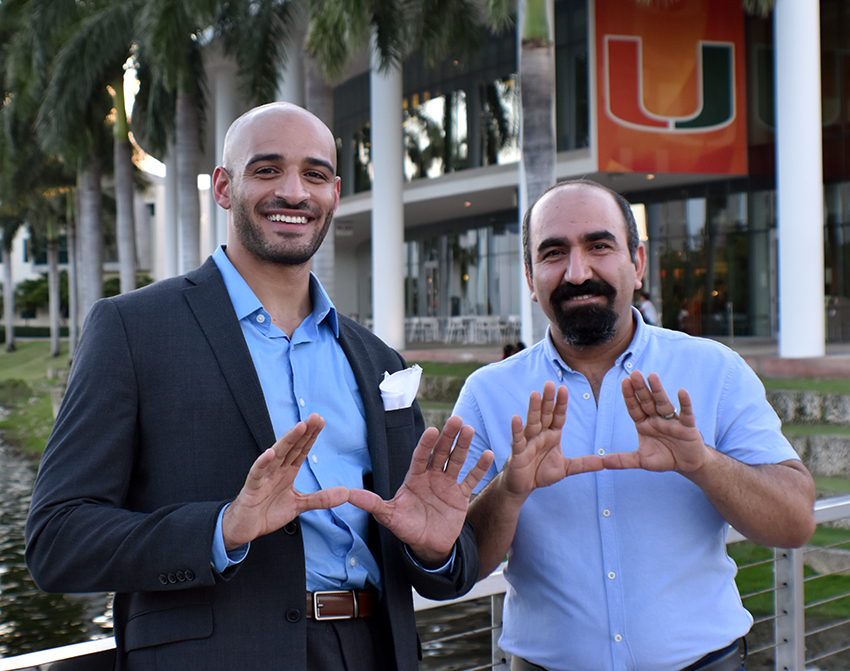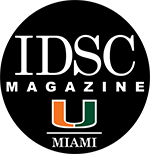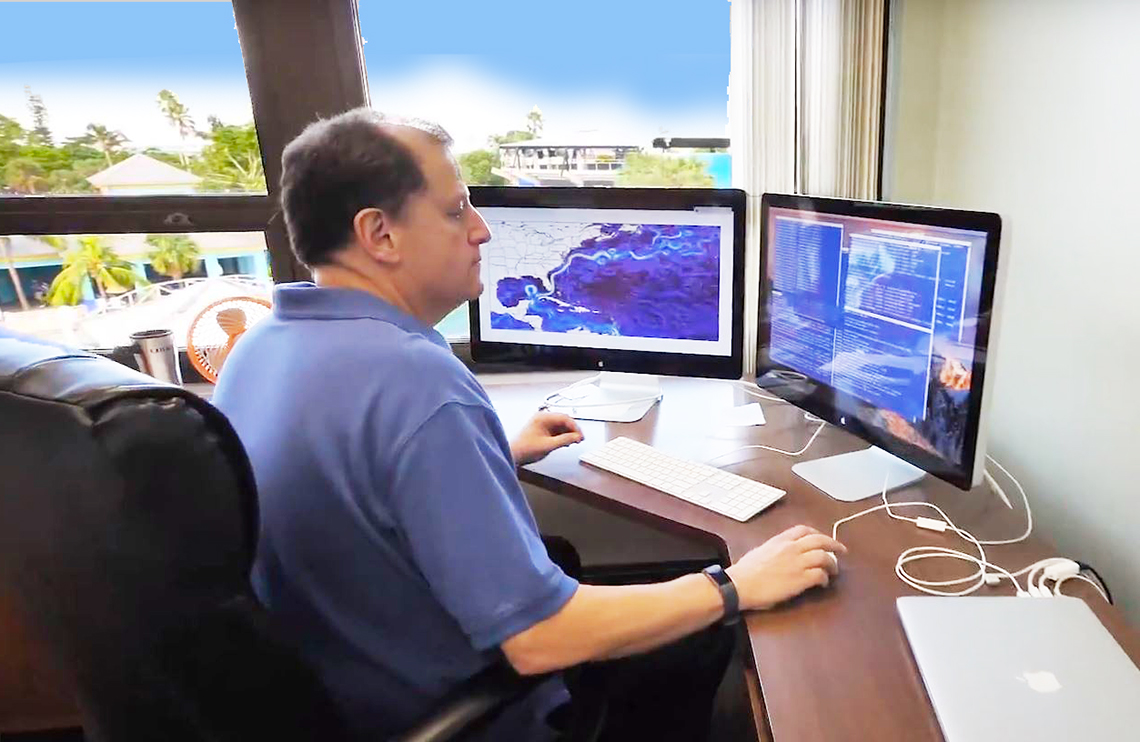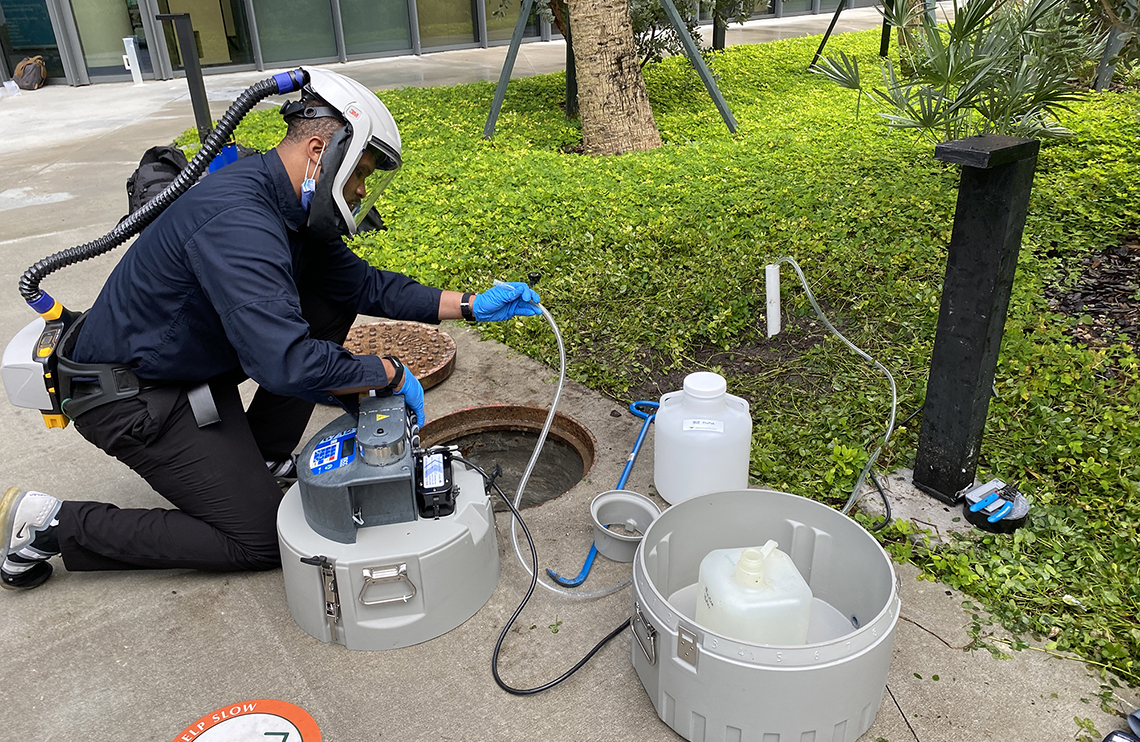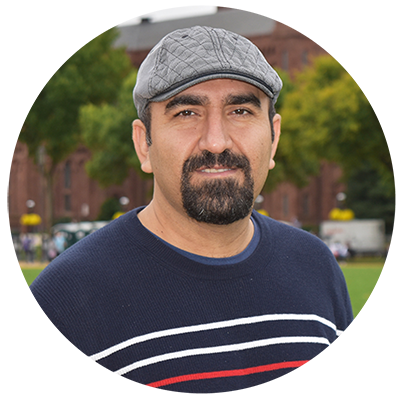 By addressing consumer confusion regarding recycling, a new University of Miami Institute for Data Science and Computing (IDSC) collaborative project could have a significant impact on the nation’s materials management programs.
By addressing consumer confusion regarding recycling, a new University of Miami Institute for Data Science and Computing (IDSC) collaborative project could have a significant impact on the nation’s materials management programs.
“We are developing an artificial intelligence (AI) model that recognizes different types of recyclable and non-recyclable materials at the source,” said Dr. Amin Sarafraz (pictured at left), Research Assistant Professor of the Department of Civil and Architectural Engineering in the College of Engineering and a member of the IDSC Software Engineering team. “By making this information readily available, we will help residents dispose of materials according to local regulations, and prevent recyclable materials from going to waste and dangerous materials from being mishandled.”
“People across the U.S. are confused about
what is recyclable in their neighborhood,
since every program accepts different materials.”
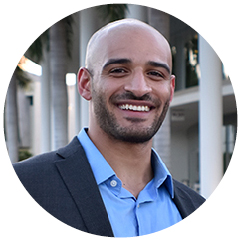
Sarafraz is a co-principal investigator for this high-impact project, “Identification of Mixed Plastics and Valuable Electronics at the Source,” a collaborative initiative with Lid Vizion, a Miami company led by Shawn Wilborne, J.D. ’20, M.S.S.B. ’21 (pictured at right), and Lamar Giggetts (pictured below), a Virginia-based software architect. The IDSC project is funded by the University of Miami (UM), Lid Vizion, and a matching grant from the REMADE Institute, a public-private partnership established by the U.S. Department of Energy (DOE) to accelerate the nation’s transition to a circular (recycling-based) economy.
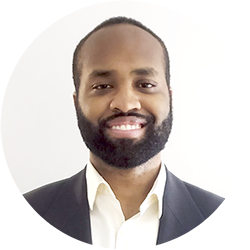
“People across the U.S., are confused about what is recyclable in their neighborhood, since every program accepts different materials,” Sarafraz said. “We are trying to bridge that gap for the consumer, beginning with a pilot project in our community.” Eventually, this initiative could help waste haulers, processors, and local governments in Florida and the Southeastern U.S. ease the burden of contamination.
“The problem of contamination must be addressed at the source—the point of disposal into a receptacle,” said Wilborne. “Consumer confusion occurs ‘at the lid,’ and can lead to frustration, disruptions, and danger throughout our recycling systems.”
Using machine learning (ML) and computer vision, the IDSC team is developing a database and training an AI algorithm to recognize hundreds of different materials. Sarafraz is also developing an augmented reality (AR) application funded by the University of Miami that provides similar information to students and staff on campus. Along with the AI algorithm, IDSC and Lid Vizion are collaborating on the development of an application programming interface (API) that allows devices or software programs to communicate with each other. For instance, the API could be “plugged into” existing municipal recycling applications in communities across the country. The API would provide consumers with photos and descriptions of what materials are acceptable for recycling not only in that local area, but also the specific receptacle,” Sarafraz said.
“While there are other recycling applications,
this will be the first to provide clear,
photographic matching of specific materials,
as well as local rules and specific receptacles.”
“While there are other recycling applications, this will be the first to provide clear, photographic matching of specific materials, as well as local rules and specific receptacles,” said Sarafraz, adding that the application is particularly timely as so many people have moved from one location to another during the COVID-19 pandemic.
While a UM law school student, Wilborne began studying the materials-handling supply chain and reached out to Giggetts, a former high school basketball teammate and post-collegiate roommate who was experienced in building software systems. They founded Lid Vizion in 2019 to provide advanced technology to the waste and recycling sector to tackle contamination, create value instead of confusion, prevent hazardous materials from polluting vulnerable communities, and create safe workplaces for frontline workers.
“Our goal is to create behavior change by helping
consumers to not only recycle the right way
but, also, to identify sustainable alternatives.”
“Our goal is to create behavior change by helping consumers to not only recycle the right way but, also, to identify sustainable alternatives,” Wilborne said “I began by reaching out to Florida recycling coordinators to better understand recycling contamination and then delivered a follow-up survey to incorporate their feedback into our solution. A few coordinators in particular went above and beyond to really help us with our journey. It takes a village and we are just getting started.”
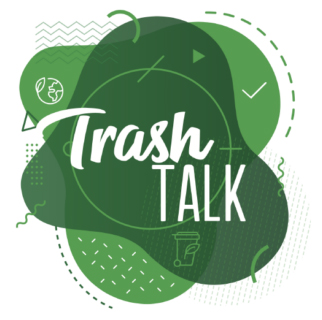 Over the past three years, Wilborne has been active in sustainability and recycling initiatives including waste and recycling audits, litter indexes, and trash cleanups at UM, as well as a participatory art project, “Trash Talk”, in collaboration with Cortada Projects and Miami-Dade County to help residents recycle ‘right’. “This new technology project has the ability to scale rapidly and provides a great opportunity for UM to be involved in meeting a worldwide need,” he said. “We can use our community as a sandbox, and adapt this technology to different languages and cultures at a national and international level.”
Over the past three years, Wilborne has been active in sustainability and recycling initiatives including waste and recycling audits, litter indexes, and trash cleanups at UM, as well as a participatory art project, “Trash Talk”, in collaboration with Cortada Projects and Miami-Dade County to help residents recycle ‘right’. “This new technology project has the ability to scale rapidly and provides a great opportunity for UM to be involved in meeting a worldwide need,” he said. “We can use our community as a sandbox, and adapt this technology to different languages and cultures at a national and international level.”
About Lid Vizion
Lid Vizion aims to hit ‘zero’. Whether that means zero contamination, zero pollution, zero-carbon, or zero confusion, Lid Vizion believes we must all work together, that people should understand the impact of their consumption through data-driven education and supply chain transparency. Lid Vizion focuses on responsible consumption and production. The Lid Vizion culture focuses on sustainability and service, and they take protecting communities, workplaces, and the environment very seriously.
About the REMADE Institute
Founded in 2017, REMADE partners with industry, academia, and national laboratories to enable early-stage applied research and development that will create jobs, dramatically reduce embodied energy and greenhouse gas emissions, and increase the supply and use of recycled materials. In 2019, the institute provided funding to the UM College of Engineering for a single-stream recycling project. For additional information about the REMADE Institute, visit remadeinstitute.org.
